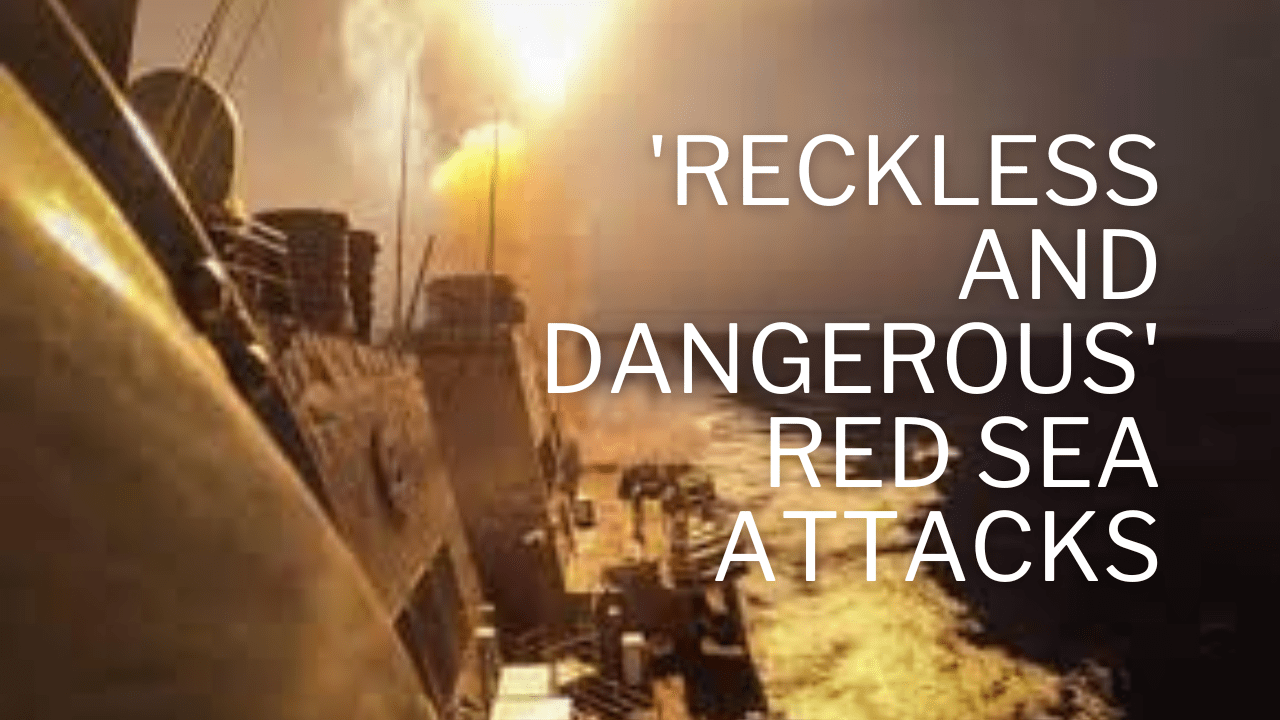
Middle East Crisis in Red Sea Attacks
Middle East Crisis in Red Sea Attacks
Unraveling the Middle East Crisis: Blinken Condemns ‘Reckless and Dangerous’ Red Sea Attacks
SEO Meta Description: Dive into the live updates on the Middle East crisis as Secretary of State Blinken labels the Red Sea attacks ‘reckless and dangerous.’ Gain insights on the unfolding events, diplomatic responses, and the potential repercussions.
The Middle East is once again thrust into the global spotlight as Secretary of State Antony Blinken denounces the recent Red Sea attacks as ‘reckless and dangerous.’ In this detailed exploration, we unravel the complexities of the ongoing crisis, providing live updates, diplomatic perspectives, and a thorough analysis of the situation.
Real-time Middle East crisis: Blinken: Red Sea attacks are “dangerous and reckless”
The Genesis of Tension
As we delve into the heart of the matter, it’s crucial to understand the root causes of the escalating tension in the Middle East. Historical conflicts, geopolitical rivalries, and regional power struggles have long fueled the volatile landscape, laying the groundwork for events that demand the world’s attention.
Blinken’s Condemnation
Antony Blinken, the United States Secretary of State, does not mince words in condemning the Red Sea attacks. His characterization of the incidents as ‘reckless and dangerous’ underscores the severity of the situation. We dissect Blinken’s statement, exploring its diplomatic implications and the potential ramifications for international relations.
International Response
The Red Sea attacks prompt swift responses from the global community. Diplomatic channels buzz with discussions as nations grapple with the urgency of addressing the crisis. Explore how key players on the world stage navigate the delicate balance of condemning aggression while avoiding escalation.
Regional Impact
The repercussions of the Red Sea attacks reverberate across the Middle East, affecting neighboring countries and alliances. Delve into the geopolitical shifts, security concerns, and the broader impact on stability in a region historically marked by complexities.
Escalation or De-escalation?
In the midst of heightened tensions, the question arises: Will the situation escalate further, or can diplomatic efforts pave the way for de-escalation? We analyze the current indicators, historical precedents, and the role of international mediation in determining the trajectory of the crisis.
Blinken’s Diplomatic Initiatives
Secretary Blinken’s response extends beyond condemnation, as he outlines diplomatic initiatives to address the crisis. Gain insights into proposed strategies, potential alliances, and the role the United States aims to play in diffusing tensions and restoring stability.
The Role of Global Organizations
International bodies and organizations play a pivotal role in crisis management. Explore the involvement of entities such as the United Nations, NATO, and regional alliances in shaping a collective response to the Middle East crisis.
Public Sentiment and Concerns
As events unfold, public sentiment becomes a significant factor. Understand the concerns of citizens within and beyond the affected region, as well as the impact of the crisis on global perceptions of stability and security.
Economic Implications
The Middle East crisis extends its tendrils into the economic realm. Analyze the potential economic ramifications, including shifts in oil prices, trade disruptions, and the broader implications for global markets.
Middle Eas
Click Here To Contact Me
t Crisis in Red Sea Attacks







